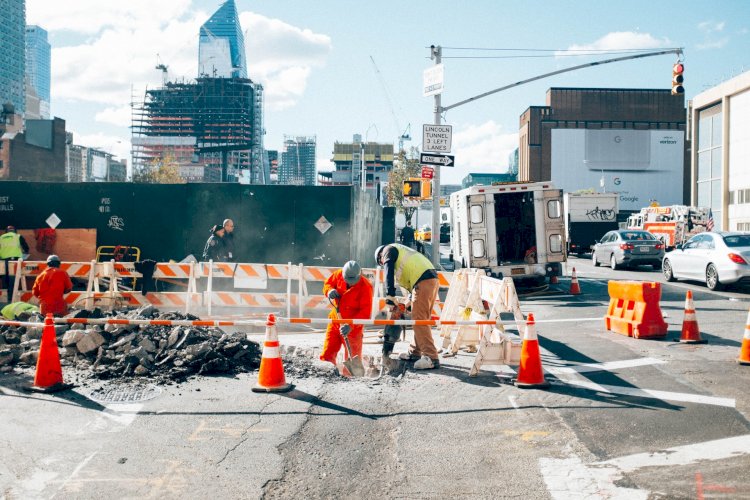Construction Site Security: A 2025 Guide to Protecting Your Site
3 months ago - 2 min read
Construction sites are high-value targets, facing constant threats from theft, vandalism, and unauthorised access. For UK contractors and developers, robust construction site security isn't just about protecting assets, it's essential for safeguarding workers, maintaining project timelines, and controlling costs.
This guide breaks down the key security threats and outlines six essential steps to fortify your site, from perimeter fencing to CCTV surveillance and professional security personnel.
Understanding Construction Site Security Threats
The financial impact of poor site security is staggering. Theft alone costs the UK construction industry over £800 million annually. Beyond stolen equipment, vandalism causes costly damage and project delays, while unfinished structures attract dangerous trespassing.
The primary security risks for construction sites include:
- Vandalism and Property Damage: Graffiti, broken windows, and sabotaged equipment can set projects back by weeks. This deliberate damage also creates serious safety hazards for workers and can harm your company's reputation.
- Theft: High-value plant machinery, tools, and materials are prime targets for thieves, leading to massive replacement costs, increased insurance premiums, and significant project delays.
- Unauthorised Entry and Trespassing: Trespassers, whether opportunistic or malicious, can cause damage or injure themselves on hazardous sites, potentially leaving your company facing legal liabilities.
Essential Steps for Effective Construction Site Security
A successful security strategy uses a layered approach based on deterrence, detection, delay, and response. Here are the six essentials for securing any construction site:
1. Conduct a Professional Risk Assessment
Every effective site security plan starts with a thorough risk assessment. Evaluate your site's location, layout, access points, and high-value assets. For complex sites or high-risk areas, consider hiring a professional security company to identify vulnerabilities and create a targeted strategy that meets insurer requirements.
2. Restrict and Control Access
Your first line of defence is a secure perimeter. Install robust, anti-climb fencing and control entry points using manned checkpoints, ID checks, or keycard systems. This ensures only authorised personnel can enter, immediately reducing the risk of theft and trespassing.
3. Implement Comprehensive Surveillance
Continuous monitoring is key to preventing crime. Mobile CCTV towers offer flexible coverage of key areas and provide crucial evidence if a breach occurs. For enhanced protection, mobile patrols and security dogs act as a powerful visual deterrent and can respond rapidly to any incidents.
4. Install Strategic Lighting and Signage
A well-lit site is a powerful deterrent. Use bright floodlights and motion-activated lighting to eliminate shadows and blind spots. Complement this with clear signage (e.g., "CCTV in Operation," "No Trespassing") to warn potential intruders and strengthen your legal position.
5. Secure Vehicles and Equipment
Protect high-value assets by storing them off-site when possible. For items left on-site, use heavy-duty locks, immobilisers, and GPS tracking systems. Mark equipment with serial numbers and store tools in anchored, steel vaults. Pay special attention to securing metals and fuels, which are highly attractive to thieves.
6. Train Your On-Site Team
Your workforce is a vital part of your construction site security. Provide regular safety and security training to empower employees to spot and report suspicious activity. Clear communication channels and drills ensure everyone knows how to respond to an incident, protecting both the site and your personnel.
Conclusion: Partnering for a Secure Site
Implementing a multi-layered site security strategy is non-negotiable for protecting your investment and people. Partnering with a professional, SIA-accredited security company provides the expertise to tailor a solution to your project's specific needs.
When selecting a partner, prioritise experience in the construction industry and look for flexible services that can scale with your project. Investing in quality construction site security is a direct investment in your project's timely, safe, and successful completion.